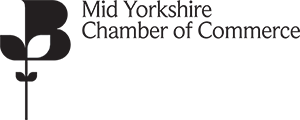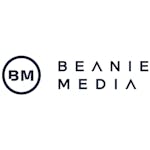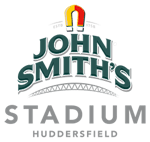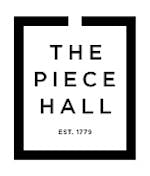Trading with Northern Ireland
Published 3rd Sep 2021 by MY Export Hub
When the UK left the European Union, special arrangements were put in place for trading with Northern Ireland. Here we examine the current operation of the protocol.
It is important to remember that Great Britain (GB) includes England, Scotland and Wales, and does not include Northern Ireland. The UK includes GB and Northern Ireland.
The purpose of these arrangements was to prevent a hard border being imposed between Northern Ireland (NI) and the Republic of Ireland (RoI). The EU wishes to prevent goods sent from GB to NI from moving to the EU unless they comply with EU regulations.
For example, over time GB food safety rules may diverge from EU regulations. That would mean foods sold in GB would not be allowed to be sold in the EU; the EU wishes to prevent such goods from moving into Northern Ireland (NI) as there is nothing preventing the food then moving to Ireland as there is no customs border between the RoI and NI. Consequently, the EU requires goods like milk, meat and eggs to be inspected before entering the EU (as it does for all imports from outside the EU). These checks are to be made when they enter NI from GB and customs documents need to be completed, even if the goods are to be consumed in NI. Hence, the recent fuss about chilled meats and sausages.
The restrictions, however, apply to all food and animal products, medicines and other products. This came to a head over recent weeks as the dispensation that allowed chilled meats to be sent to NI from GB was due to end by 30 June. The period has been extended by a unilateral UK decision to 30 September, but there is no agreement on how to finally resolve the issue. The EU has, however, agreed to permit this extension until 30 September for chilled meats such as sausages and other meat products, classed as prohibited and restricted (P&R) goods.
In addition, the UK has announced moves to ease the trade in parcels and plants. The current regulations do not permit soil from GB to be moved to NI. This prevented plants being moved as they could have soil attached. The UK has relaxed this rule allowing the movement of plants provided they are from an authorised business meeting GB plant passporting requirements for soil. Also, agricultural machinery can be moved without a health certificate providing soil has been washed off.
The EU has agreed to make it easier to move guide dogs and livestock to NI. It has also proposed to alter EU law to allow the supply of medicines licenced in GB to be supplied in NI. But, the controls on imports into NI remain and businesses trading with NI must comply with them. The number of goods affected is extremely large and they cannot all be covered here, but links are given where further information can be found.
Trader Support Service
The Trader Support Service is a free to use service that aids businesses to move goods between GB and NI. This service helps business to complete declarations without the need for specialist advice or software and will give information regarding moving goods between GB and NI using online courses and other materials. The services can be contacted here.
EORI
An EORI is required to interact with the customs authorities. Delays and extra costs will be incurred without an EORI. An EORI number for UK businesses will start with a GB, but an EORI that starts with XI is required to move goods between Northern Ireland and non-EU countries (including GB).
To get an EORI an application needs to be made through the Government Gateway and the Government Gateway user ID and password must be used. The business also needs to supply its VAT number and date of VAT registration, their National Insurance number if an individual or sole trader, the Unique Taxpayer Reference (UTR), their business start date and Standard Industrial Classification code (SIC). An application for an EORI can be made here.
Movements starting or ending in Northern Ireland
A different version of the New Computerised Transit System has been created for movements to and from NI. Where goods move from NI to GB, a request to start the movement can be obtained by emailing Border Force at: BFPortteam@homeoffice.gov.uk. To obtain this, it will be necessary to provide the:
- name
- EORI number
- local reference number (LRN) and either the Movement Reference Number (MRN) or Export Reference Number (ERN)
- method of transport
- port of departure
- location of the goods until the transit movement starts
- the date and time of expected departure.
A movement ending in NI requires a request to be made to the Border Force (e-mail given above) to end to the transit movement. Details to be included are:
- name
- movement Reference Number (MRN)
- method of transport
- port of arrival
- location of the goods on arrival
- the date and time of expected arrival.
In addition, a Transit Accompanying Document (TAD) or C88, a conformation of entry into another customs procedure (such as an entry into CDS or CHIEF, and import declaration, T2L documents, etc).
Further information regarding movements between NI and GB can be found here.
Outline information is provided below regarding different types of products that can be moved to NI from GB. The specific requirements for individual products must be adhered to and this information can be found on the Northern Ireland Department of Agriculture, Environment and Rural Affairs website.
Products of animal origin and animal by-products
Whilst there has been an extension of the concession for animal products, such as chilled meats, this concession only applies to authorised traders (supermarkets and trusted suppliers) for animal and plant products destined for retail sale in NI. It is necessary to make a compliance declaration on the STAMNI system (Scheme for Temporary Agri-food Movements NI). This replaces the need for Export Health Certificates, Phytosanitary Certificates, Marketing/Standards Certificates and Organic Certificate of Inspection. Movements of animal products outside the STAMNI scheme needs all these certificates. To use the scheme authorised businesses must:
- register on Traces NT (EU Trace Control and Expert System — New Technology)
- apply a commercial seal to the freight unit
- follow groupage guidance if part of a groupage movement
- complete a STAMNI compliance declaration
- complete the CHED P (Common Health Entry Document for Products) with the appropriate details using CN code 9930, and local reference Retail.
Where products of animal origin (POAO), animal by-products (ABP) or other regulated goods (RG) are moved to NI from GB, the person responsible for the consignment needs to be registered on Traces NT and the appropriate export health certificates are provided. The chilled meats guidance is to be followed where these are being shipped and the relevant certificates of inspection must be provided. The Department of Agriculture, Environmental and Rural Affairs (DAERA) needs to be notified 24 hours in advance of the arrival in NI by creating the CHED-P on Traces NT. In addition, labelling requirements must be complied, the goods must only enter NI at a port or airport with EU designation for that product using tamperproof seals (as recorded on the EHCs and CHEDs). In addition, all wood packaging materials is to be ISPM15 compliant, groupage rules must be followed and rules of origin complied with.
Fish products
A similar concession for retail products applies to fish products as to animal products. For non-retail products it is necessary to ensure that the person responsible for the consignment is registered on Traces NT and copies of the original, officially stamped EHC (export health certificates) signed by GB officials are to be provided. The original EHC is to accompany the consignment. The CHED-P needs to be created on Traces NT, and supporting documents, such as the catch certificate, is to be uploaded. Fishery products can only be imported into NI through Belfast Port, Larne Port or Warrenpoint. The other requirements of animal products (such as packaging, groupage and notification) also need to be complied with.
Plant and Plant Products
Some plant products are regulated, others are not. If the plant product is not regulated, then no specific action is required. If the plant product is registered, it is necessary for the business to register (a business address in NI is required to register). Registration is required on Traces NT and a copy of the phytosanitary certificate is to be provided. The original certificate is to accompany the consignment. Temporary measures under EU Covid legislation allows an electronic copy of the original phytosanitary certificate to be used provided the original certificate is submitted as soon as possible. The DAERA Plant Health Inspection Branch is to be given 24 hours notices of arrival using the CHED P. The plant products can only be entered through a sea or airport that has EU designation for these products and the other requirements of animal products (such as packaging, groupage and notification) also need to be complied with.
Other products
Further information can be found on the DAERA website for other goods moved to NI and related matters including:
More information
It is expected that the rules and regulations for movement of goods to NI will change frequently over the next few months. Businesses need to ensure that they are up to date to ensure they comply. The following links provide details of where up-to-date information can be found.
Further information regarding moving goods to and from NI can be found here.
Detailed information regarding the rules for differing products moved to NI can be found here.
For those that wish to see the details of the Protocol the text of the Northern Ireland Protocol is available.





 Dan Hallett joins Big Red Industries Board
Dan Hallett joins Big Red Industries Board.jpg?auto=compress%2Cformat&cs=strip&fit=crop&h=56&ixlib=php-1.1.0&w=100&s=80dd755dd23af62b868613cff87cf7a1) Northern Ireland Protocol: the UK's Solution
Northern Ireland Protocol: the UK's Solution Leeds Beckett University students to feature at Graduate Fashion Week
Leeds Beckett University students to feature at Graduate Fashion Week






.png?auto=compress%2Cformat&cs=strip&fit=clip&ixlib=php-1.1.0&w=150&s=02705ec06ec3eb07a6900cc88c0cd0b5)




